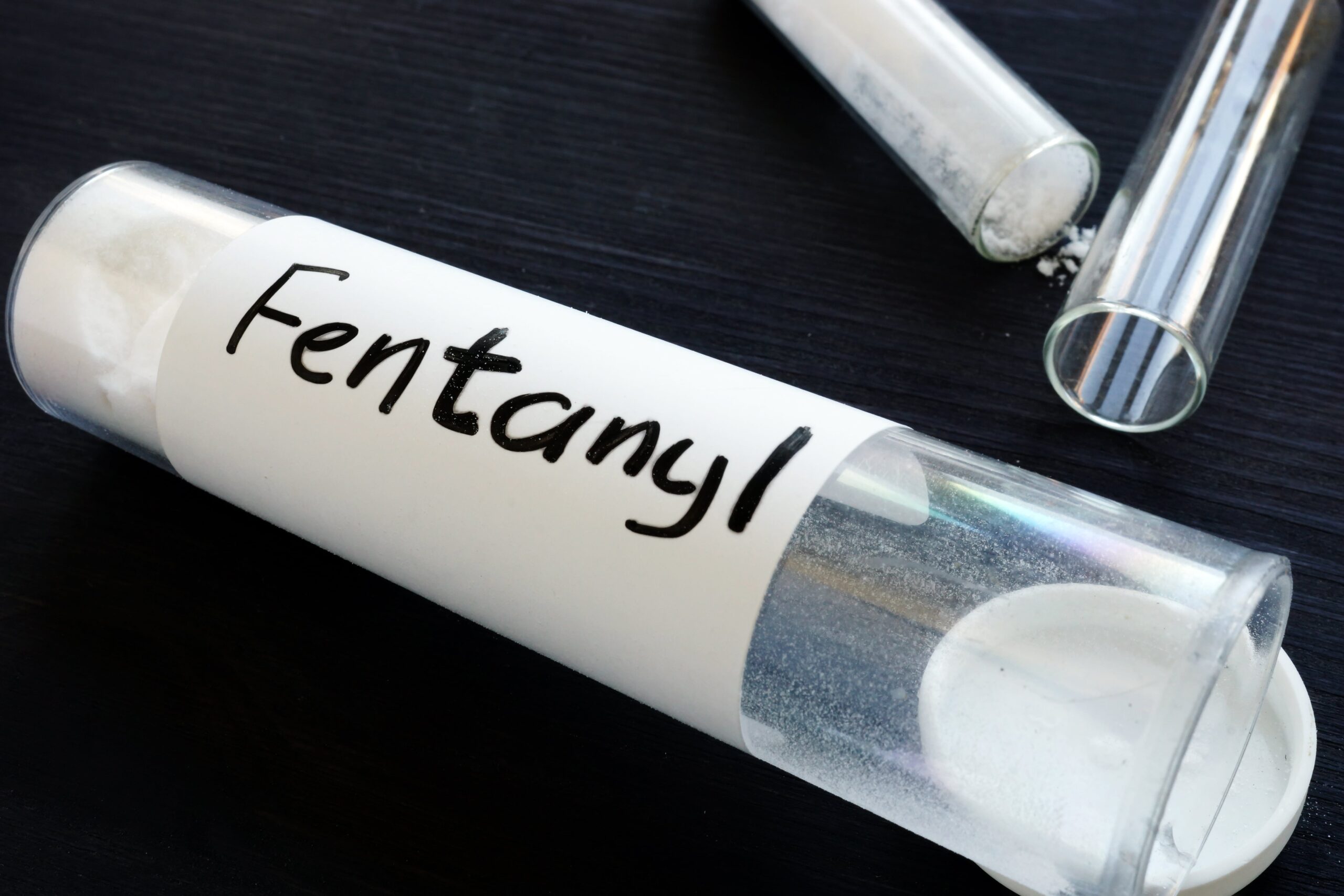Fentanyl Addiction Treatment Center
- Home
- Addiction Treatment in Los Angeles
- Fentanyl Addiction Treatment Center
Fentanyl Addiction Treatment Center
Table of Contents
- Dual Diagnosis
- Mental Health
- Understanding Opioid Addiction
- Types of Opioids
- How Do I Know I Need Opioid Rehab?
- Our Opioid Rehab Programs in Los Angeles
- Tour Our Opioid Rehab Programs
- How Long Does Opioid Rehab Last?
- What To Expect At Our Opioid REhab in Los Angeles
- Discover an Opioid-Free Future at Our Opioid Rehab in Los Angeles Today
- Hear From Our Alumni
Dedicated Fentanyl Addiction Treatment Center in Woodland Hills
Fentanyl abuse has increased significantly in recent years. From being mixed with other substances like cocaine and heroin to being used in place of other opioids, fentanyl use can be dangerous.
Developing a fentnayol addiction is very easy due to its potent effects, which are 50 times more powerful than heroin.
At Iris Healing, we offer comprehensive and individualized fentanyl addiction treatment programs in Woodland Hills in a caring and supportive environment. Call us now at 844-663-4747 or verify your insurance now.
Understanding The Dangers of Fentanyl
Fentanyl is an incredibly potent synthetic opioid, making it appealing to those seeking a powerful high. It is also highly addictive because it triggers the reward center in the brain. However, its potency can easily lead to overdose and death, even in small amounts. It only takes 2 mg of fentanyl to overdose and die in most cases.
Additionally, mixing fentanyl with other substances further increases the risk of overdose. Unfortunately, street fentanyl is frequently combined with other drugs without users’ knowledge, further increasing the danger.
Furthermore, developing tolerance and dependence on fentanyl can happen quickly from the potent effects experienced. As tolerance builds, larger doses of fentanyl are required to achieve the desired effects. Yet, as dosages increase, so does the likelihood of overdoses and deaths.

History of Fentanyl
Fentanyl was created in 1959 by Dr. Paul Janssen.2 Since it produced effects that were up to 100 times stronger than morphine, Fentanyl was quickly adopted into medical use to treat severe pain. In 1972 Fentanyl was approved for use in anesthesia. It was right after this time that the first reports of misuse of the drug were reported.
Since then, more ways of using fentanyl were developed such as the fentanyl patch known by the brand name Duragesic. The fentanyl patch showed that it was very useful in treating chronic pain, but it also increased the number of ways the drug could be abused. Over the past 2 to 3 decades, as more ways of using the drug have been developed, there has also been an increase in the number of people using this drug illegally.
There has also been an increase in fatal fentanyl overdose due to misuse by patients, inappropriate prescriptions by clinicians, and increased illegal production and distribution of the drug.
Fentanyl Addiction Treatment Programs
At Iris Healing, we offer a range of specialized fentanyl addiction treatment programs in Los Angeles designed to address the unique needs and challenges of individuals struggling with this dangerous opioid. Our comprehensive approach combines evidence-based therapies, holistic treatments, and personalized care to help our clients achieve lasting recovery.
Detox
Our detox program provides a safe and comfortable environment for individuals to rid their bodies of fentanyl while managing withdrawal symptoms under medical supervision. Our experienced staff ensures that the detox process is as smooth as possible.
Residential Treatment
Our residential program offers 24/7 support in a highly structured therapeutic setting where clients receive individual therapy, group counseling, medication management, and holistic therapies to address all aspects of addiction recovery.
Partial Hospitalization Program (PHP)
Our PHP offers intensive treatment during the day, allowing clients to return home or to a sober living facility in the evenings. This program is a step down from our residential program and includes individual and group therapy sessions, educational workshops, relapse prevention strategies, and family counseling.
Intensive Outpatient Program (IOP)
Our IOP provides more flexible scheduling for those requiring ongoing support but with commitments such as work or school. Clients attend individual and group therapy sessions several times weekly. Our IOP is for those who have a strong support system at home, have a mild addiction, or are transitioning from our residential or PHP programs.
Outpatient Rehab
Our outpatient rehab program is ideal for individuals who have completed higher levels of care but still need continued support to maintain their newly found drug-free lives. This step-down level of care allows clients to maintain their progress through individual counseling, group therapy sessions¸and other supportive services.
How Do I Know I Need Fentanyl Addiction Treatment?
The signs and symptoms of fentanyl addiction can vary from person to person. Generally, common ones to look for include:
- Experiencing euphoria
- Feeling calm and relaxed
- Drowsiness
- Constricted pupils
- Poor focus
- Engaging in risky behaviors
- Uncontrollable cravings for fentanyl
- Looking forward to using fentanyl
- Continuing to use fentanyl despite any negative consequences
- Experiencing withdrawal symptoms when attempting to cut back or quit fentanyl
- Neglecting responsibilities at work, school, or home
- Hobbies and activities one used to enjoy are no longer pleasurable
- Lack of personal hygiene
- Financial problems
- Relationship problems
- Withdrawing from friends and family
- Associating with other fentanyl users
Fentanyl Side Effects
Fentanyl addiction can have many adverse effects, so it must be treated by professionals. There are many resources available and ways to treat addiction to get support, get sober, and maintain sobriety long term.
Short-Term Effects
People who use fentanyl illegally report that the effects of this drug come on quicker and more intensely than a drug like heroin. This means that the adverse short-term effects can be intense. Common short-term effects of this drug include:
- Sleepiness
- Confusion
- Constipation
- Nausea
- Hot flashes
Long-Term Effects of Fentanyl
When used over a long period, fentanyl can have many dangerous effects on the mind and the body. A common long-term effect of fentanyl abuse is brain damage because fentanyl use depresses the functions of the respiratory system, leading to a lack of oxygen traveling to the brain. Repeated use of this drug over a long time can cause damage in the brain that is similar to dementia.
Other long-term fentanyl side effects are chronic depression, pain, and the inability to feel pleasure from things that would normally cause happiness. Someone with an addiction to fentanyl may also complain that they always feel like their mind is foggy or they’re feeling under the weather. These negative symptoms can go on for months or years without realizing it the drug that is damaging their body.















About Fentanyl Overdose
Fentanyl overdose is a life-threatening situation that can occur when an individual takes too much of this potent opioid, whether intentionally or accidentally. Signs and symptoms of a fentanyl overdose may include:
- Shallow breathing or difficulty breathing
- Extreme drowsiness or inability to wake up
- Pinpoint pupils
- Unresponsiveness
- Cold, clammy skin and bluish lips/nails
- Slow heart rate
If you suspect someone is experiencing a fentanyl overdose, call 911 immediately, as time can be crucial in these situations. In many cases, naloxone (Narcan) can reverse the effects of the overdose if given promptly
How is Fentanyl Addiction Treated?
Fentanyl addiction is a complex and challenging condition that requires specialized treatment to address both the physical and psychological aspects of addiction. Various therapies are used to treat fentanyl addiction, including:
About Fentanyl Overdose
In fentanyl addiction treatment, certain medications may be used to help manage withdrawal symptoms, control cravings, and promote recovery, such as:
- Buprenorphine
- Naltrexone
- Methadone
- Clonidine
- Antidepressants or anti-anxiety medications
Why Choose Iris Healing Center?
There are several reasons why individuals struggling with fentanyl addiction should consider choosing Iris Healing Center for their recovery journey:
Evidence-Based Treatment
Our programs are grounded in evidence-based practices, ensuring clients receive the most effective and research-backed therapies.
Personalized Care Plans
Each client receives a customized treatment plan tailored to their unique needs, goals, and recovery objectives.
Multidisciplinary Approach
We offer a comprehensive approach to treating substance abuse, incorporating medical, psychiatric, psychological, and holistic modalities to address all aspects of an individual’s well-being
Experienced Staff
Our team consists of licensed therapists, doctors, nurses, and counselors highly trained in addiction medicine and mental health to provide high-quality, individualized care.
Aftercare Planning
We continue to support our clients after rehab with aftercare planning and ongoing support services. We want everyone to achieve long-term recovery success.
Start Fentanyl Addiction Treatment in Los Angeles Today
Take the first step toward reclaiming your life from fentanyl addiction at Iris Recovery. Our fentanyl addiction treatment in Los Angeles provides personalized treatment options, compassionate care, and a supportive environment to help you break free from the grips of addiction. Contact us today to begin the path to a brighter tomorrow now.
- https://www.drugabuse.gov/drug-topics/opioids
- https://www.asam.org/docs/default-source/advocacy/opioid-addiction-disease-facts-figures.pdf
- https://www.kff.org/other/state-indicator/opioid-overdose-deaths-by-raceethnicity/?dataView=1¤tTimeframe=0&selectedDistributions=white-non-hispanic–black-non-hispanic–hispanic&selectedRows=%7B%22wrapups%22:%7B%22united-states%22:%7B%7D%7D%7D&sortModel=%7B%22colId%22:%22Location%22,%22sort%22:%22asc%22%7D
- https://www.ncbi.nlm.nih.gov/pmc/articles/PMC5105018/
Iris Healing® strives to be diligent and prompt in updating the information available on our website. Please note, however, that our treatment modalities and protocols are subject to change at any time. For the most up-to-date details regarding our treatment offerings or other protocols, please contact us: (844) 663-4747.
The length of fentanyl rehab at Iris Healing varies depending on individual needs. Most clients begin with a medically supervised detox lasting 5-10 days, followed by 30 to 90 days of residential treatment. Aftercare planning and ongoing support help ensure continued success after discharge.
Common signs that someone may need fentanyl rehab include intense cravings, withdrawal symptoms, slowed breathing, confusion, and risky behaviors like using street drugs or mixing substances. If you notice these signs, it’s critical to seek professional help as soon as possible.
Yes. Fentanyl detox at Iris Healing in Woodland Hills is medically supervised 24/7 to ensure safety and comfort. Our clinical team carefully manages withdrawal symptoms and monitors each client’s health throughout the detox process, providing medications when appropriate.
Absolutely. Iris Healing specializes in dual diagnosis treatment, meaning we address both fentanyl addiction and co-occurring mental health issues such as depression, anxiety, PTSD, or bipolar disorder. Our integrated approach improves outcomes and supports comprehensive healing.
Our fentanyl rehab program includes a blend of evidence-based therapies and holistic treatments, such as:
- Cognitive Behavioral Therapy (CBT)
- Dialectical Behavior Therapy (DBT)
- Family therapy
- Neurofeedback
- Yoga, meditation, and art therapy
This combination supports healing across the mind, body, and spirit.
Getting started is easy. Simply call Iris Healing at (844) 663-4747 or fill out our confidential contact form online. Our admissions team will walk you through a free assessment, verify insurance, and help arrange same-day or next-day admission when needed.



